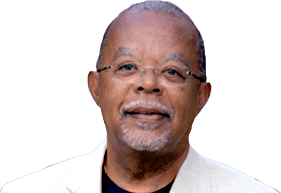Brenda Woodson Hermanson
Growing up in the “enlightened” 1950s-60s of central NJ, I attended integrated schools all my life. Having a Black teacher was virtually unheard of. Through my elementary years, in the entire school district there were only a handful. It was not until I reached high school that the landscape changed somewhat.
Sadly, I remember being ashamed of being the descendent of people who were enslaved. Those were definitely the days of “If you’re light, you’re alright … etc.” And yes, this was the north! However, this did not mean that racism didn’t exist in other quarters. I remember attending a movie with my youngest sister in about 1968. On exiting the aisle, we had to pass a white woman who lashed out with her foot and kicked me saying, “You don’t belong here.” In my youthful naivete, I couldn’t figure out what she meant and it took me years to comprehend that she was referring to the fact that we were Black.
Another incident took place in 1966 when friends of mine who were an interracial couple (he Black, she white) were told by our school principal that they could not attend the senior prom together. Thankfully, the student body rose up and staged a sit-in in protest which caused him to recant.
My knowledge of the history of our people was virtually non-existent. I don’t think it was intentional on my parents’ part, but there was definitely an ethos of leaving all that slavery baggage behind and looking forward to better things. All I basically knew was about Frederick Douglas, Harriet Tubman and George Washington Carver.
Therefore, I was totally embarrassed when at some event in college, the program included singing the Negro National Anthem. I wasn’t even aware that there was such a thing. From then on, I made a concerted effort to learn more about the story of black folks.
Through the turbulent 60’s like many others of my generation, I became involved in the struggle and was proud to have campaigned for Kenneth Gibson, the first African American mayor of Newark, NJ. The same Newark that had been the scene of deadly riots after the assassination of Dr. King, who was killed on my 19th birthday.
The older I got, the more I learned and wanted to learn; particularly about my own family. It was not until I was married and had children that I began that project in earnest. With the help of my husband, I began researching my roots.
While this is still a work in progress, through Ancestry.com, visits to the National Archives, a visit to Georgia, and piecing together stories from family members, I have been able to trace all of my great-great grandparents, and four of my great-great-great grandparents; one of whom the 1870 lists as being 95 years old, having been born in Africa! Sadly, I haven’t been able to follow that up to try to find out what ship he might have arrived on.
One of the things I remember my grandmother telling me was that her grandfather used to tell the children stories about slavery, but her mother put a stop to that. She didn’t want those memories passed on to her children. How I wish they had been! It would have been a rich source of information that is now lost.
The great thing is that along with genealogy, we have also collected many old photos which are in a genealogical grouping in our house for future generations to see.




